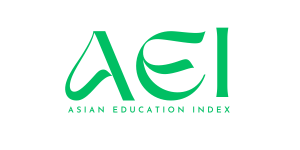An impact of tax reforms on the economic development in Uzbekistan
Keywords:
Tax, reforms, economic, economyAbstract
As an independent state, Uzbekistan appeared on the world map in 1991. The country launched reforms that were supposed to create a base for running a market economy. In 1996, however the course of the economy was radically shifted towards intensification of state intervention in the economy and the implementation of an import substitution policy. To accelerate industrial development, the state redistributed huge flows of material, financial, monetary and labour resources through: Direct allocation of resources, administrative regulation of commodity prices, interest rates and exchange rates; High taxes and government expenditures; Restricted access to the official exchange rate which is beneficial for currency buyers (usually two to three times different from the market rate); Establishment of artificial monopolies by limiting the access to markets for new players and provision of tax, credit and other benefits to certain enterprises or groups of enterprises; Direct (‘manual’) business management; and Limitation of imports by tariff and non-tariff barriers
References
The currency was distributed at the official exchange rate not on the free market and between ‘selected’ buyers in accordance with decisions of officials who were guided by: a) the development priorities of certain industries defined by state programs, b) corruption interests.
Source: Databank, World Development Indicators, https://databank.worldbank.org/source/world-development-indicators#
Kun.uz, 7.9 million Uzbeks work in informal sector, October 2018, https://kun.uz/ru/69289201; The figure for external migrants seems to be substantially underreported.
Nuz.uz, Banking sector transformation: strategic challenges for Uzbekistan, January 2020, https://nuz.uz/ekonomika-i-finansy/45851-transformaciya-bankovskogo-sektora-strategicheskie-vyzovy-dlya-uzbekistana.html
Foreign Economic Activity Commodity Nomenclature, the customs codes used in the post-Soviet Space Additional requirements for properties of imported goods and conditions for their sale, different from the requirements for local goods, or difficult to achieve for importers.
Julius Yusupov, What will result in growth of customs payments, ced.uz, October 2019, http://ced.uz/publitsistika/chem-obernetsya-rost-tamozhennyh-platezhej/
Downloads
Published
Issue
Section
License

This work is licensed under a Creative Commons Attribution-NonCommercial 4.0 International License.
User Rights
Under the Creative Commons Attribution-NonCommercial 4.0 International (CC-BY-NC), the author (s) and users are free to share (copy, distribute and transmit the contribution).
Rights of Authors
Authors retain the following rights:
1. Copyright and other proprietary rights relating to the article, such as patent rights,
2. the right to use the substance of the article in future works, including lectures and books,
3. the right to reproduce the article for own purposes, provided the copies are not offered for sale,
4. the right to self-archive the article.













